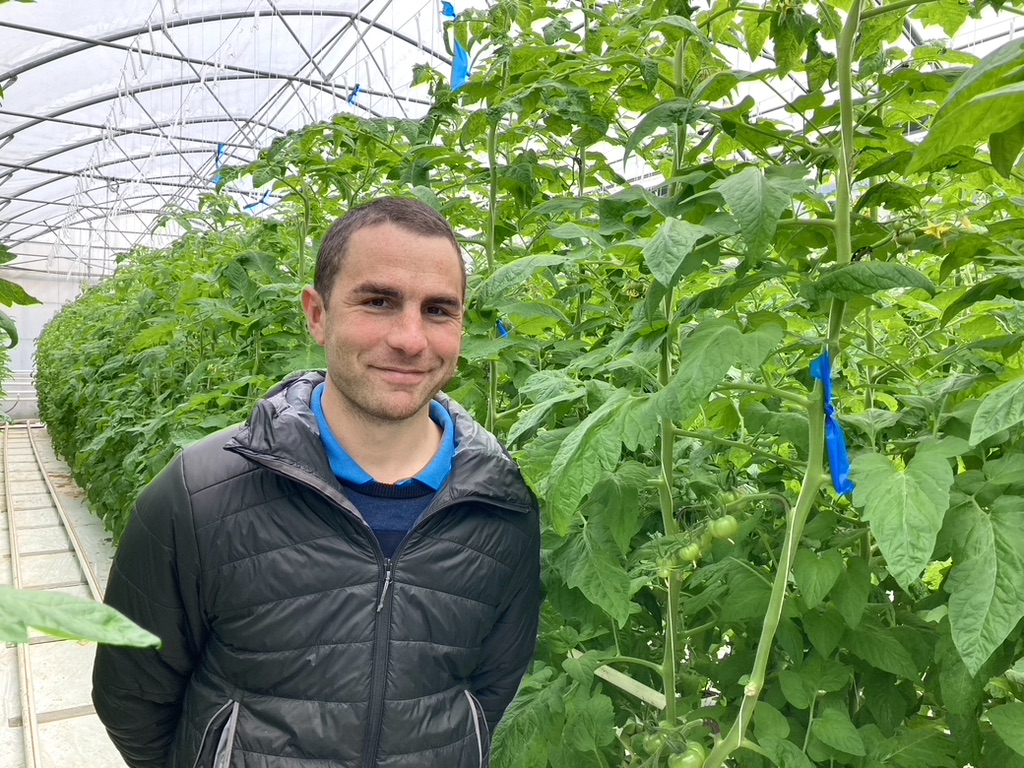Welcome to the world of fresh vegetable innovation and food safety! Today, we’ll introduce you to Terre d’Essais, one of the experimental stations created by Prince de Bretagne growers. This station plays a key role in the evolution of vegetable farming practices, especially in the organic sector. Directed by Thibault Nordey, an engineer and Doctor of Agronomy, this CERAFEL member organisation is dedicated to supporting producers in their transition to more sustainable growing methods, and to promoting product quality while respecting the environment. Let’s take a deep dive into the history, roles and goals of Terre d’Essais.
Plant innovation and food safety: a history of commitment
· Improve the competitiveness and sustainability of vegetable production systems;
· Maintain and improve product quality;
· Reduce the environmental impact of production.To achieve these goals, the station has 10 hectares of organic field crops as well as 5,000m² of greenhouse crops, of which 2,700m² are organic.
The key role of Terre d’Essais
Terre d’Essais is much more than a simple experimental station: it’s a keystone of our fresh vegetable producers’ businesses. With governance organised around growers’ active participation, every year the station decides which missions and projects to pursue, putting the emphasis on the issued faced by producers. Varietal evaluation makes up 75% of the work carried out by Terre d’Essais, in response to strong demand from growers looking for levers to improve their crops in a context of not only climate change, but also the evolution of social demands, markets and regulation. Terre d’Essais also explores other themes such as water management and non-chemical fertilisers. Its research projects are carried out over periods ranging from 2 to 10 years. Indeed, although the efficiency of biostimulants can be measured over two seasons, around 10 seasons are necessary to pinpoint the benefits of green manure for the soil.
Our vegetable producers: a strong interest in innovation and technology
Before becoming director of Terre d’Essais, Thibault Nordey performed various roles at CIRAD[JW1] , a French research organisation working on agricultural R&D in southern-hemisphere countries, especially in Africa.
“Breton vegetable growers have been technically very strong for a long time. The average tomato yields in sub-Saharan Africa are around 1–2kg/m², while in Northern Brittany they’re over 50kg/m².”
Indeed, Breton vegetable growers have always shown a strong interest in technological progress, which has led them to invest and pool their resources by creating research facilities such as CATÉ, OBS, Végénov, and, of course, Terre d’Essais. The experimental station was founded as an association and is managed exclusively by producers. It has optimised regional coordination, with product-specific technical meetings and a committee dedicated to organic field crops.
A focus on expertise
The diversity of crops and themes represented in Terre d’Essais projects reflects the wide range of vegetables produced by the growers associated with the station, as well as the many issues they face. Terre d’Essais is a key resource for Breton growers, enabling them to make the link between research results and the development of locally-suitable technical solutions. The research station is a facility on a human scale, with a staff made up of experienced technicians and engineers who fill the equivalent of 7 full-time positions. Terre d’Essais also works with an engineer on assignment in order to participate in national-level experiments. Today, Terre d’Essais is a key player in fruit and vegetable research and innovation not only in Brittany, but in France.
Cooperating to make progress
Terre d’Essais considers cooperation to be a powerful force for innovation, which is why the station participates in national research projects. Such partnerships make it possible to share knowledge and methodology in order to respond to the technical issues common to different regions. In this way, Terre d’Essais, with the support of IRFEL, INRAE, and universities, contributes to the progress of the agricultural industry.
Terre d’Essais is a great asset to Prince to Bretagne fresh vegetable growers. Thanks to its experimental expertise, the station supports growers in their search for innovation, while guaranteeing vegetable quality for distributors and consumers. Like Pouliquen, Terre d’Essais is committed to supporting agriculture that is responsible, sustainable and looks to the future.

